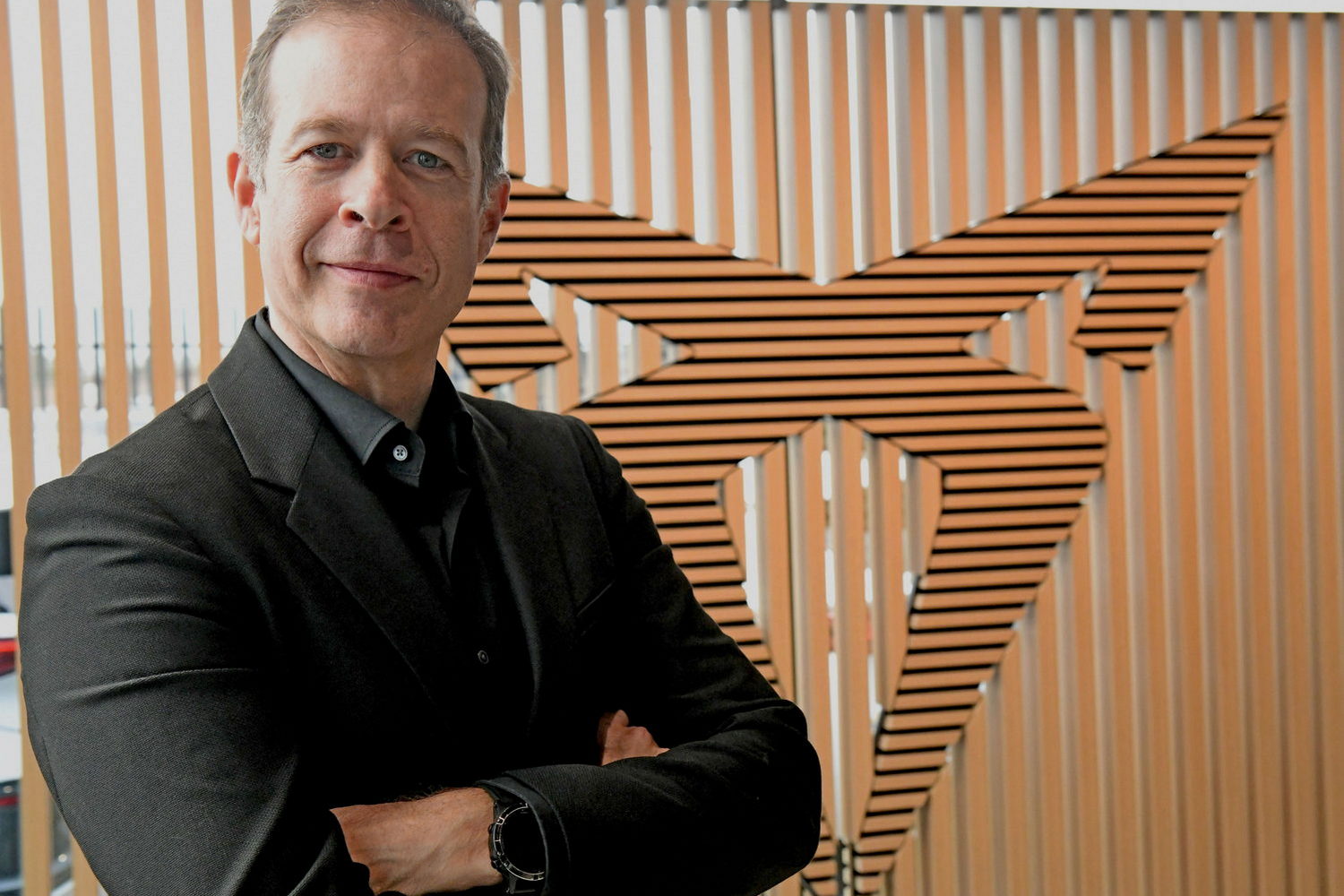There was a time when CUPRA was a badge that adorned the fastest and sportiest models within the SEAT line-up. But today it's a marque in its own right, and while there are CUPRA Leon and Ateca models that share their engineering with existing SEATs, CUPRA has gone on to launch its own cars, such as the sporty Formentor SUV and the all-electric Born hatchback.
But CUPRA is a brand on the move, as it aims to become a sporting marque in the age of electrification. To help achieve this goal, it's expanding its horizons, and CUPRA Ireland has brought in Gaspar Alcaide to help its growth on these shores. We caught up with Gaspar to get an inside line on CUPRA's plans on the Irish market - and further afield.
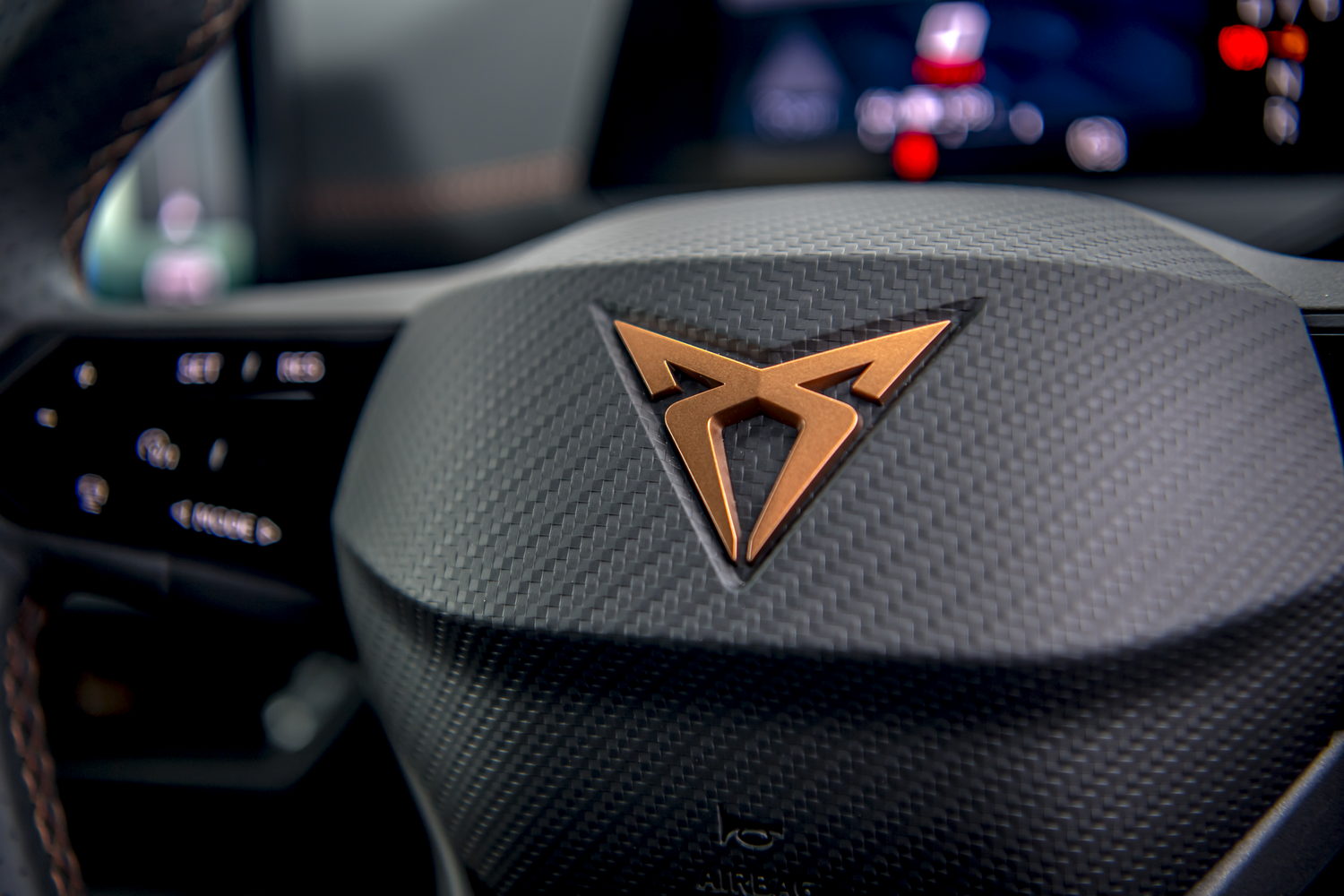
Q: So first off, tell us a little bit about yourself.
A: My name is Gaspar Acaide, and I'm Brand Director for CUPRA and SEAT in Ireland. I'm married to an Austrian and we have two children, so quite international, but we're here in Ireland now and really enjoying it, it's a fun adventure.
My background it's interesting, because I'm not one of these people with 30 years of experience in the automotive industry. I've been with SEAT and CUPRA for 12 years, and previously I worked in sales and commercial positions, in logistics to start. I've been a consultant in Austria, worked in logistics in Germany, Portugal and Spain, and then 13 years ago I got the opportunity to move to SEAT. Since I'm from Barcelona and SEAT is based nearby in Martorell, and I'm a petrolhead - I love cars and love bikes - so for me, it was like wow, it was now or never. I have had several positions, first in aftersales, then I moved to fleet and oversaw the fleet business in Europe. Then I moved to market steering and management, taking care of Scandinavia, then moved to Turkey and Algeria, then the Netherlands, UK and Ireland. And after two years I was asked to come to Ireland to take charge of CUPRA and SEAT.
Q: CUPRA is still a pretty new brand in Ireland of course.
A: Yes, Ireland is a little behind in the development of CUPRA. The reason was because CUPRA is a performance brand, which comes from a heritage of racing in the past. So, the road cars initially came with 310hp, which meant high CO2 and taxation in Ireland that was almost impossible to manage. But with new 150hp cars and a lot of electrification and plug-in hybrids, CUPRA made sense for Ireland.
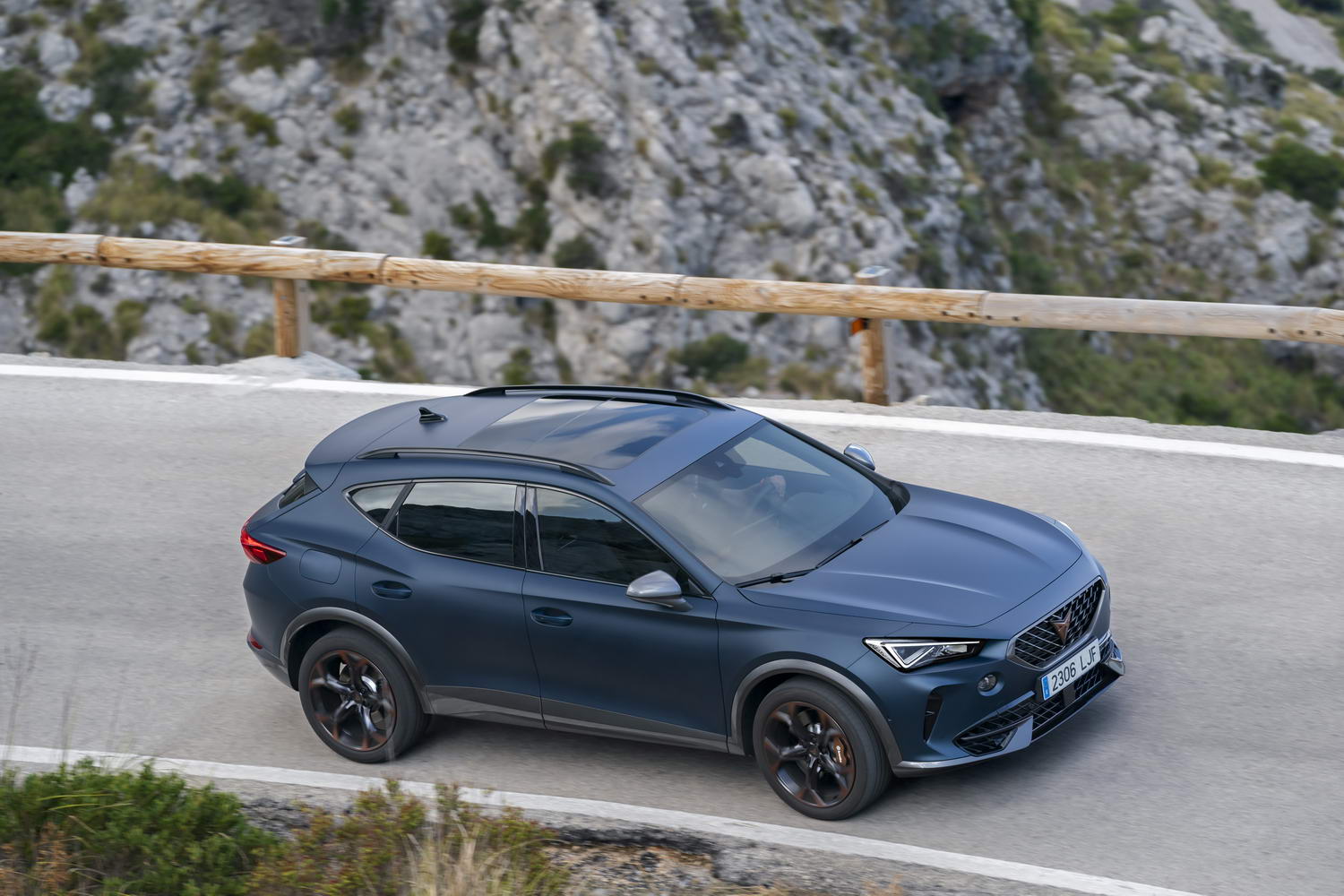
Q: There were doubters that CUPRA would work, but the numbers speak for themselves, don't they?
A: When we arrived in 2021, we just sold a couple of cars in Ireland, then in 2022 we were up to 700 cars, then last year we sold 1,700 approximately, so we've multiplied by nine times in two years, which is a good way to keep growing.
Q: How do you go about developing a sporty brand such as CUPRA when electrification is a key factor?
A: Since we launched CUPRA we've had the Born available, and we've made a lot of effort to communicate about it, so it means that CUPRA could be perceived as an electric brand, but we have full electric, electrified models with plug-in hybrid power, plus petrol and diesel. We have Ateca which is purely petrol, Formentor which is petrol, diesel and plug-in hybrid, Leon which is petrol, diesel and plug-in hybrid. So CUPRA is a brand that covers the whole spectrum of engines.
In the future we will have the Tavascan and Raval, then the new Terramar, and replacement Leon and Formentor which will be plug-in hybrids with a new system with over 100km of electric range. This will be a game changer, but we will still offer petrol and diesel, so we'll offer a full spectrum of powertrains.
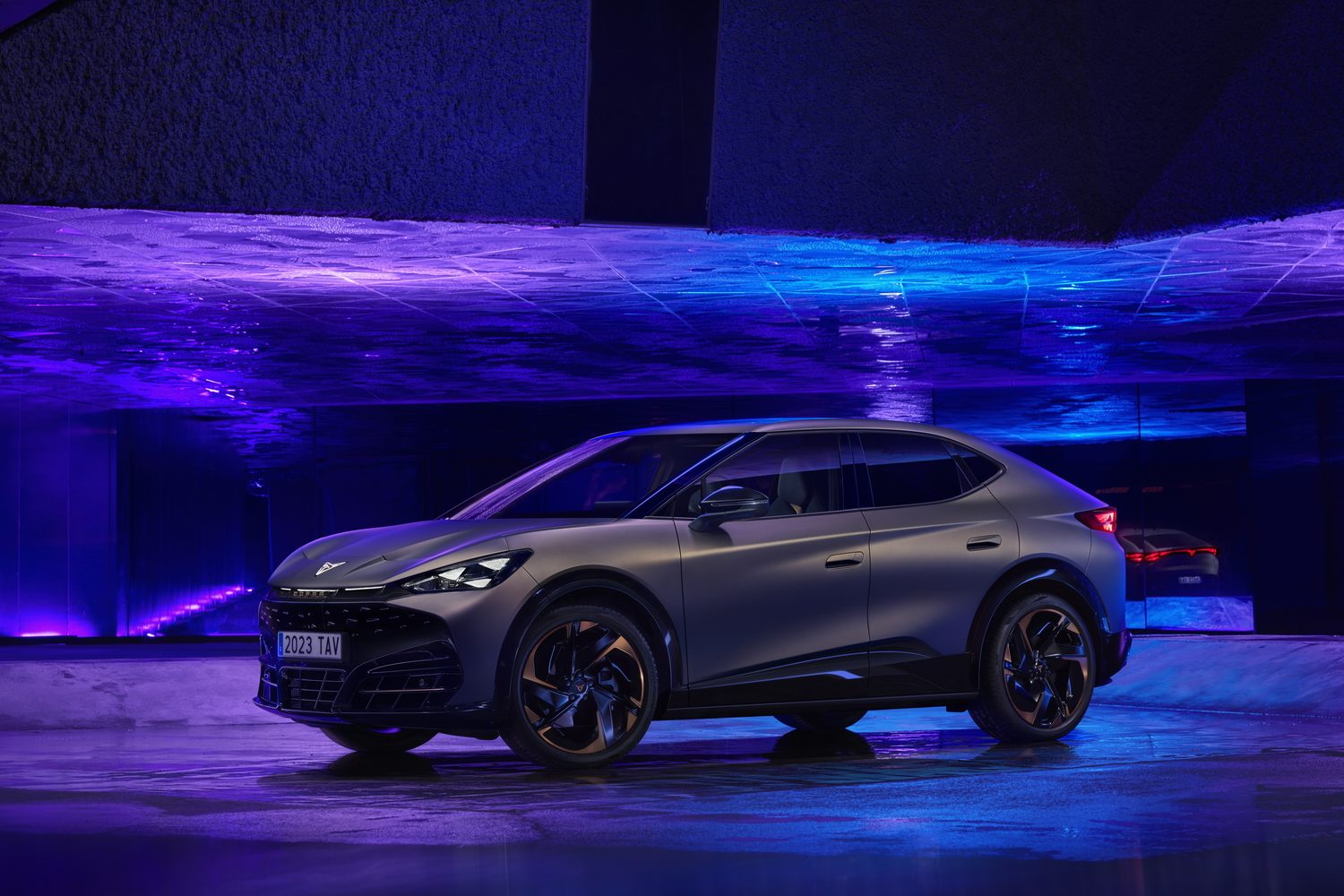
Q: That will expand the reach of the electric cars in terms of pricing, but will it be difficult to position CUPRA within the Volkswagen Group if you bring down prices while still being a premium brand?
A: We see our positioning as an upper volume brand; we don't aim to be premium like Audi or BMW. We are in a smaller segment at the upper end of the volume market, and we will be there with a variety of cars, so we don't see this as being an issue.
Q: There's a major overhaul on the way for the Leon (alongside the Formentor) that will take it even further from its SEAT origins, is that right?
A: The development of the two brands means that now we have SEAT in the volume sector and CUPRA in the upper part, so we can make the Leon look like a very different car at the front and back. The CUPRA Leon and Formentor will get new DNA and a face that is a definition of the Born, so they will look like a family of cars independent of SEAT.
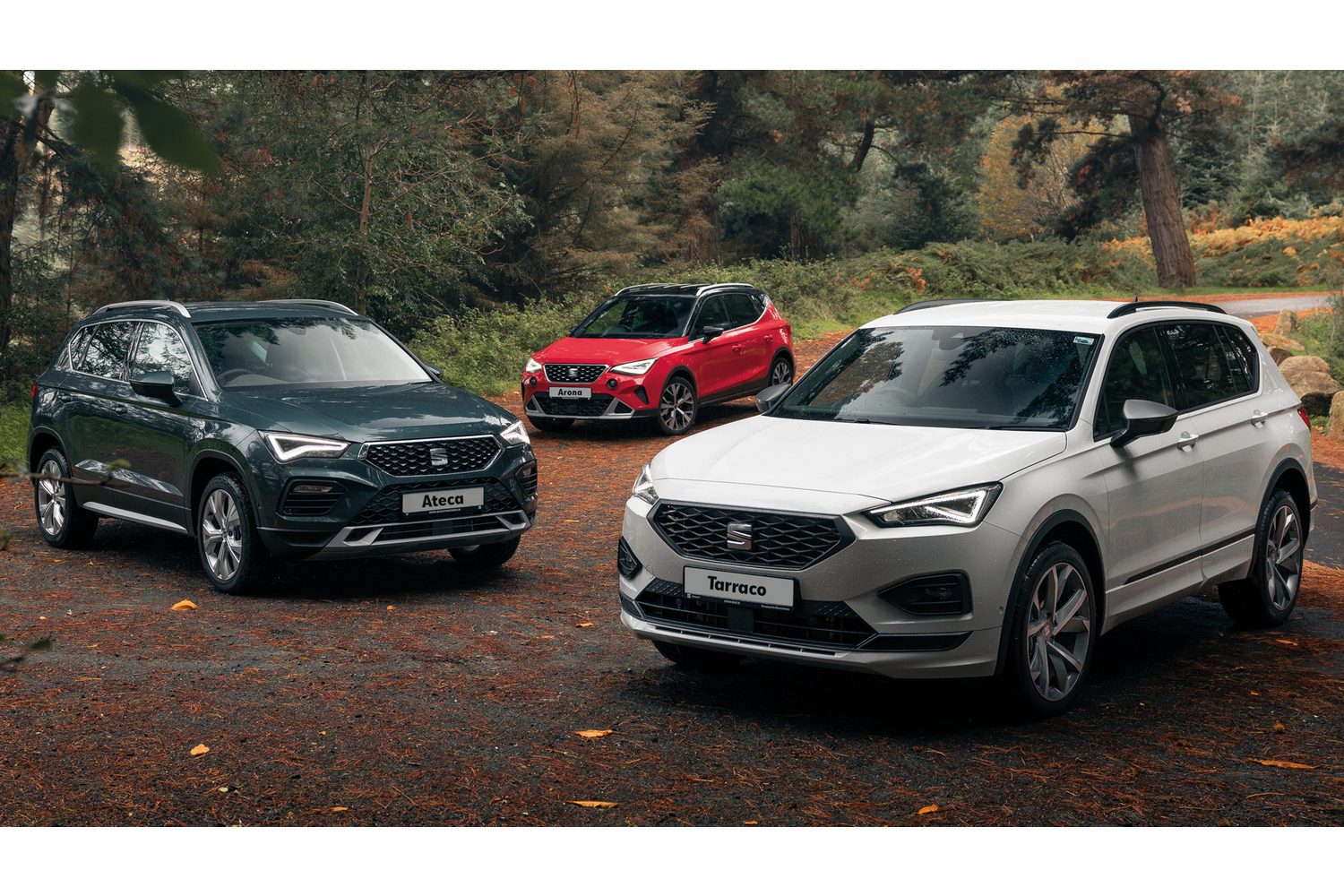
Q: On the subject of SEAT, there has been very little news on new models for the brand as the focus is on CUPRA. So, what's happening there?
A: Well SEAT is still important because we have a traditional customer base and a huge market for us. It's approximately two per cent market share, and we have people coming to SEAT and they love it, and they have another SEAT, so the demand is there. We also need SEAT.
We are building and developing new models, too. We have a renewed Arona and Ibiza on the way next year and we also plan to renew the Ateca.
Q: You talk about a full spectrum of powertrains, but at the moment in Ireland there seems to be an anti-EV backlash. It feels like it's a short-term thing, but what is CUPRA's position?
A: Internally [within the Volkswagen Group] there has been a lot of discussing about that. And the view is that the future is electric. There are billions invested in the industry, and the industry plans in the long term. It's like an understanding of the stock exchange: it has a trend, but this trend is not a straight line, you have at times certain short-term struggles, which is what we are living through now. Of course, in the short term, it's easy to talk about a disaster, but if you look in the long term, you see the market is going in this direction. And the direction is clear.
So, the good thing is that for the short term, CUPRA has this flexibility of offering cars in all the possible powertrains, and this satisfies the needs of all the customers. For the long term there's the Tavascan and Raval, so we are going clearly in this electric direction, but for the short term, we have a solution. Not to forget, we are SEAT SA, the one company with two brands, and we have all our ecosystem of dealers, customers and so on.
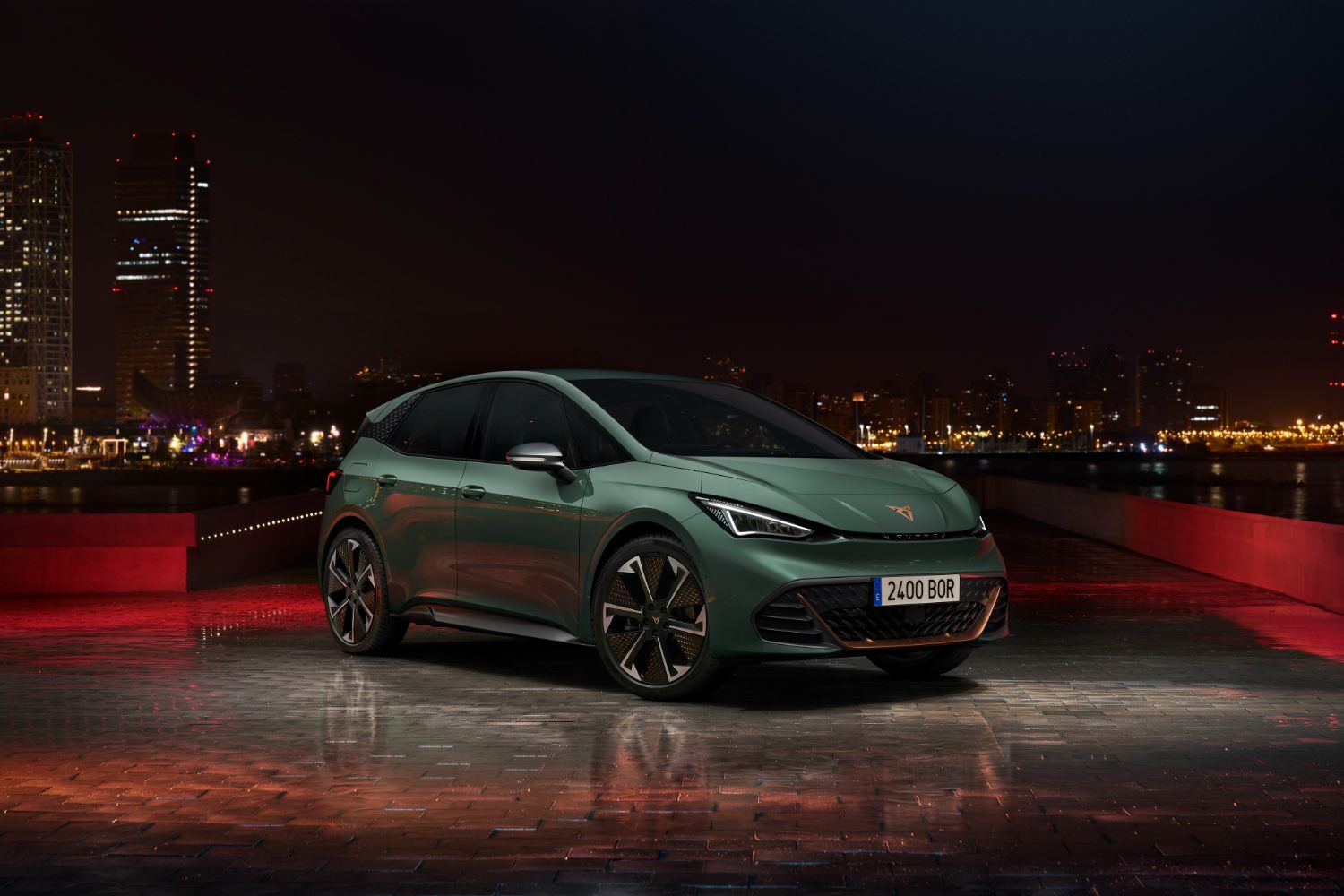
Q: How do you see SEAT and CUPRA developing in Ireland? You say there is flexibility in powertrains, so can SEAT change to meet future customer demand?
A: The important thing is to have the availability, because what takes a lot of time is to develop an engine. So, to develop a petrol for X model or a diesel for X model, once you have this set, and the company now is well prepared because we have diesel, petrol, plug-in hybrids and electric, it's just a question of logistics.
Ireland is an important market for the company. I was sent here, we have built an extremely strong team, and we are delivering very good numbers. Last year, we doubled our total business - we make 2.5 times in CUPRA and 75 per cent growth in SEAT. The plan here is to develop CUPRA in a truly relevant way, so the company is prepared and is willing to allocate if we need more electric, or we need some petrol or diesel. We have the flexibility and the availability of resources to allocate what is needed in the market.
Q: CUPRA comes across as a youthful brand, but new car buyers in Ireland are at the older end of the spectrum, because affordability is key. So how does CUPRA target younger buyers, or is the age of the buyer irrelevant?
A: At the end of the day, we have a market with a spectrum of customers. With CUPRA we are targeting people in their middle age with good resources and a younger soul inside. It's exactly as you say, the position of the availability of resources, the older the people the more availability of resources, but in today's society there are people which are already in this stage, but they still feel young - they do sports, they play padel and they feel young. This is the people we are appealing to; we are not the brand for the masses. We are a brand that polarises certainly, our design, our media messages, our communication and so on, but for these people that like it, they identify with the brand. In Ireland we won't be selling what Volkswagen is selling - that's not our aim - but for our volume there's enough people for the brand and this is what marketing is working hard to do.
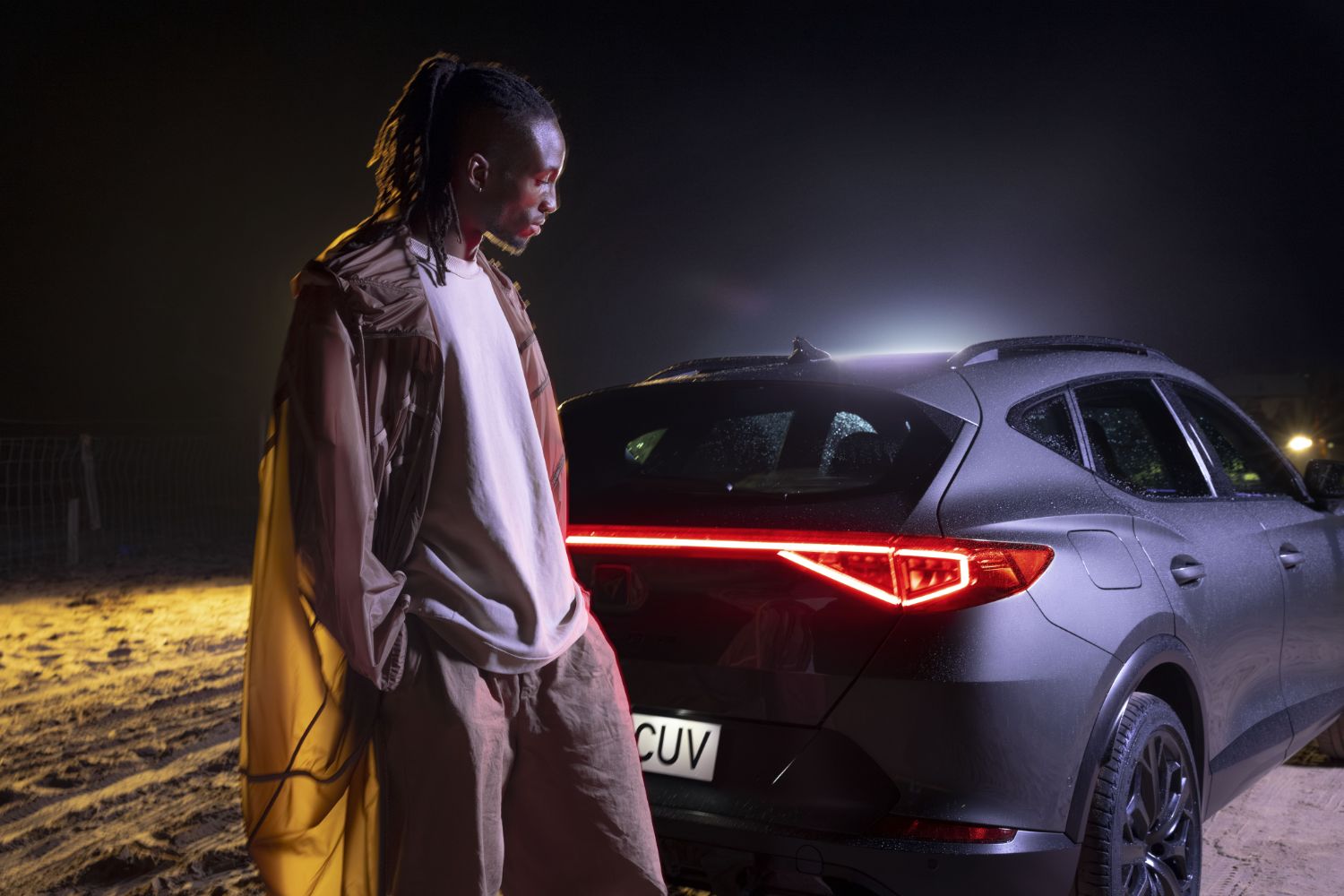
Q: As part of that, not only is there marketing, but there's promotion in other areas. There's an alignment with gaming and live music and DJs, so are there other arenas and lifestyles that CUPRA aligns with?
A: CUPRA is a brand that's been built newly within the strength of the Volkswagen Group and the spectrum of areas of development includes gaming and music, especially DJs, electronic music and so on, and the third one is padel sports.
You cannot launch a brand in an arena where other brands are already established, so you need to take your own territories. But there is no brand in gaming applying to a younger spirited customer. In electronic music there are some things done with music, but no brand is strong in electronic music, DJs and so on. There is no brand in urban culture, graffiti and urban art, but we are there and very strong.
And in terms of sport and a young spirit, there are people with golf, people with skiing, lots of other sports, but padel is new territory. CUPRA decided to overtake padel. It's the fastest growing sport in Europe, and in Ireland it's really starting to grow. So, we are co-operating with the Irish Padel Federation, there is an all-Ireland CUPRA tournament, and this is something that is growing. There are a lot of people in the segment that could be the CUPRA customer of tomorrow.
We also have an interesting DJ competition. We have over 250 people subscribed and we will run a talent competition where they will play, and the winner will perform at the Beyond the Pale Festival [in Wicklow] together with CUPRA.
Q: There's a shift in some foreign markets towards car sharing and car clubs, while Ireland is still very much big on car ownership. Do you still see CUPRA as an ownership brand, or is there scope beyond that?
A: Around 70-80 per cent of our retail sales are now PCP, because it's attractive to the customer, and this has already changed the traditional model of car ownership, where you got your car, and you had it for 30 years. Now it's very interesting because cars are increasing in technology, with the interface, the infotainment and so on. So, to have a car older than three or four years, it's considered old age, just like having an old smartphone. So, we are already in this model and we are building CUPRA to be very strong in this PCP interaction with the customers.
Then with mobility services, where you have pay-per-use and so on, we have the backup of SEAT, which is developing some mobility solutions, in a lab status at the moment. But if anything works, we will import it to Ireland. Ireland is a very progressive country, and commercially the Volkswagen Group is a trendsetter within Europe. So, if there's anything that comes in terms of mobility services, we will bring it, because at the end of the day, this is going to be another area of development of the automotive industry.
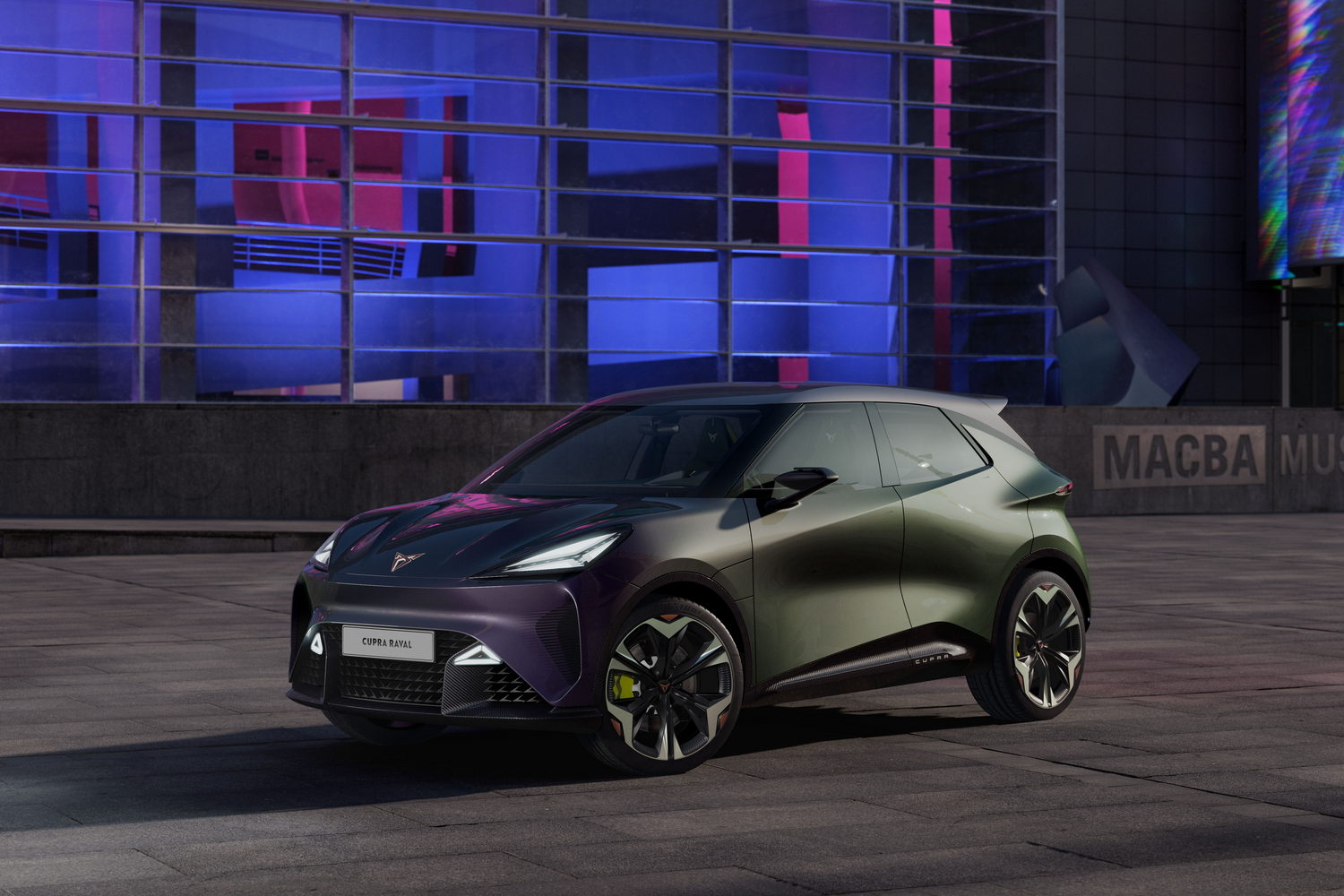
Q: Do you think right now that's more likely to sit under the SEAT brand, whereas CUPRA is more about ownership of a vehicle that's about style and technology?
A: We are lucky to have this umbrella and then we can apply what is better. It's SEAT SA that is developing mobility solutions, not SEAT the brand, so as this develops, we can see if it makes more sense to link it to CUPRA or link it to SEAT.
Q: Of course, any car maker needs a dealer network, but do you see an expansion for CUPRA beyond the current network?
A: Our need is to make a network that is profitable, both for ourselves and our business partners. We have a number of outlets which is what we planned and cover Ireland geographically, and our focus now is to enhance these dealers to the level of the CUPRA experience. Our showrooms are a little bit different [from SEAT's], they are more like a boutique and not like a traditional showroom. This is what we want to enhance in our network, so there won't be a numeric change to the network, it will be qualitive and we will bring all the dealers to the same standard so that the experience of the customers fits with the brand. This will be in place by the end of the year. We can't sell a Tavascan or a Terramar in a traditional dealership because it doesn't fit. We need to sell the brand as being different.
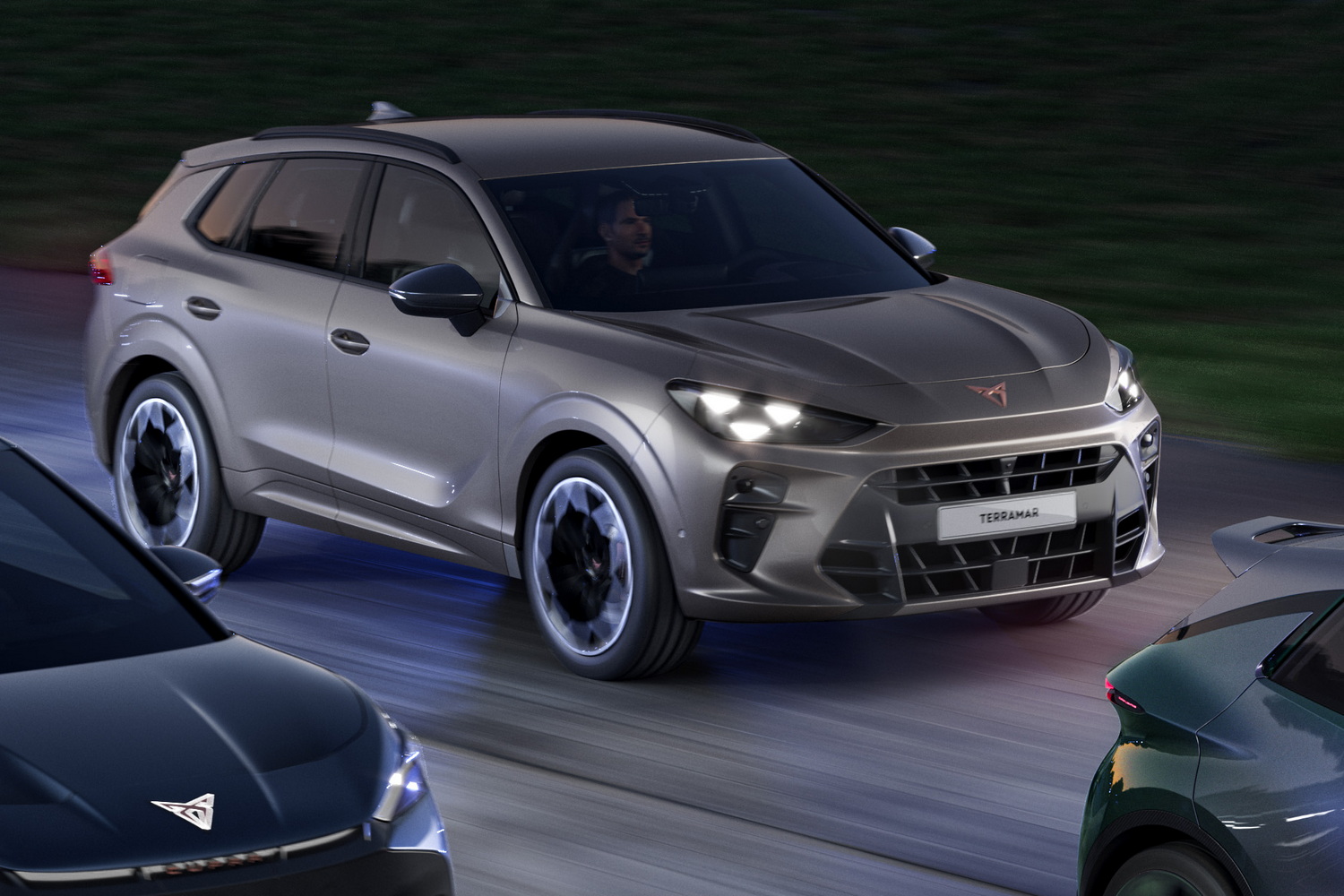
Q: How can CUPRA stand out within the Volkswagen Group?
A: Through the design of the models, and the dynamism of the cars. Even if we create EVs, they will be powerful, so the experience of driving is always going to be an emotion. This is the DNA of CUPRA. And linked to the design of the cars is the brand as a lifestyle that's cooler - not for everyone - but progressive and future-orientated design.
When we started CUPRA five years ago, it started with a few believers, but when you see the cars, especially the new ones that are coming, it's something really different, when you see the showrooms it helps you understand, and then when you see the whole concept, you see that it's a completely different brand experience that the Volkswagen Group needed. It doesn't compete with VW or Skoda; it's in a completely different position. It's a brand that offers something different. This is the task we had and we're fulfilling with a lot of success so far.

